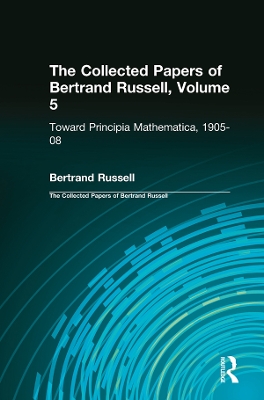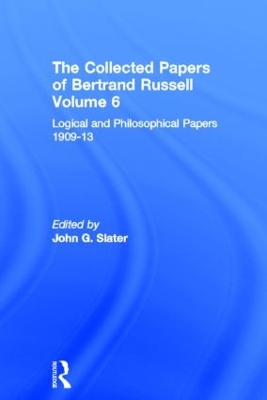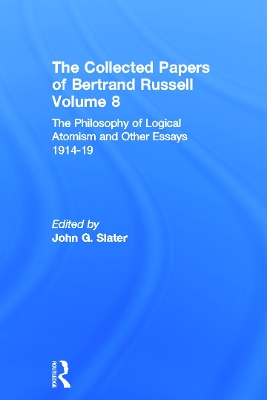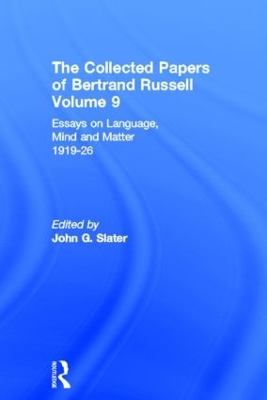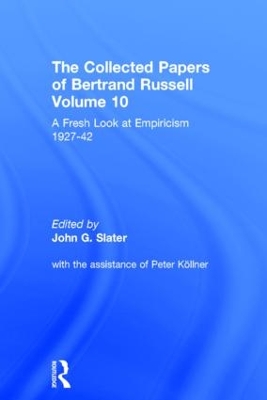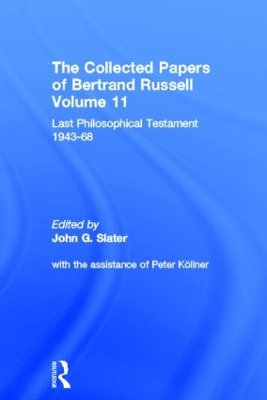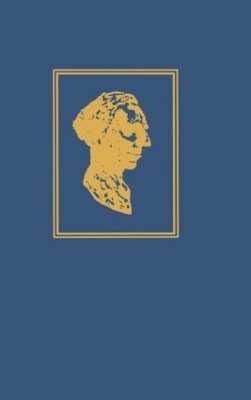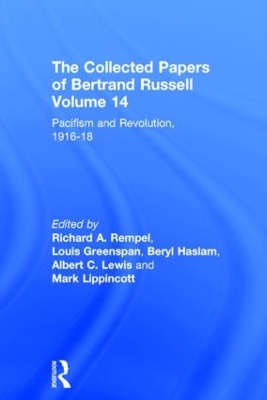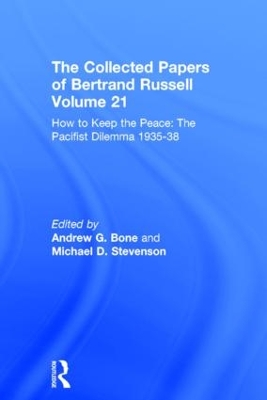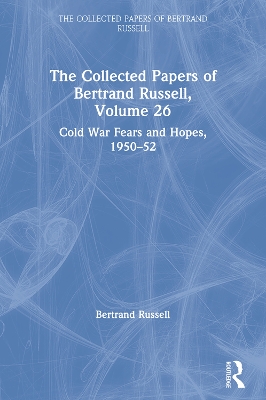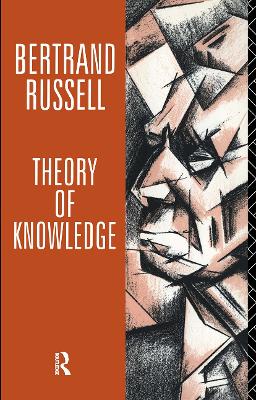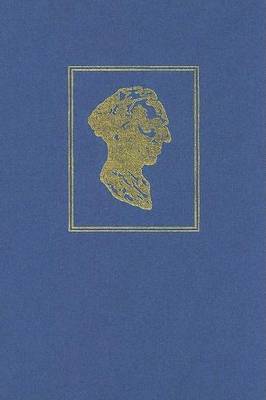The Collected Papers of Bertrand Russell
10 primary works • 16 total works
Book 5
This volume of Bertrand Russell's Collected Papers finds Russell focused on writing Principia Mathematica during 1905-08. Eight previously unpublished papers shed light on his different versions of a substitutional theory of logic, with its elimination of classes and relations, during 1905-06. A recurring issue for him was whether a type hierarchy had to be part of a substitutional theory. In mid-1907 he began writing up the final version of Principia, now using a ramified theory of types, and eleven unpublished drafts from 1907-08 deal with this. Numerous letters show his thoughts on the process.
The volume's 80-page introduction covers the evolution of his logic from 1896 until 1909, when volume I of Principia went to the printer.
Book 6
The years covered by this volume of the Collected Papers of Bertrand Russell were among the most productive, philosophically speaking, of Russell's entire career. In addition to the papers reprinted here, he bought Principia Mathematica to its finished form and wrote The Problems of Philosophy, Theory of Knowledge and Knowledge of the External World. In October 1910 he began teaching at Cambridge, having accepted an appointment as lecturer in logic and the principles of mathematics at Trinity College for a term of five years. A year later Ludwig Wittgenstein began to attend his lectures. Within a few months he was influencing Russell's philosophical thinking as much as, or more than, Russell was influencing his.
Book 8
Book 9
Book 10
During the period covered by this volume, Bertrand Russell first retired from and then resumed his philosophical career. In 1927 he published two philosophy books, The Analysis of Matter and An Outline of Philosophy. His next book in academic philosophy, An Inquiry into Meaning and Truth, was not published until 1940.
Yet, Russell published a significant amount of essays and popular books between 1927 and 1946, mostly to finance the running of Beacon Hill School, and his growing family. Those years also saw his break-up with Dora Russell, his marriage to Patricia (Peter) Spence and a move of the family to the United States.
Volume 10 brings together Russell's writings on ethics, politics, religion and academic philsophy. It is an invaluable guide to the thought and development of one of the most famous philosophers of this century.
Book 11
This volume collects together Russell's philosophical writings during the period from 1947-68. For about half of this period Russell worked steadily at philosophy but after the publication of My Philosophical Development in 1959 he retired from academic philosophy for the second time. After that date, only the occasional philosophical piece appeared, as he was preoccupied with political writings. In this volume there are a handful of papers dated later than 1959, and all of these were certainly written by Russell himself.
This volume contains Russell's writings on diverse philosophical interests, including autobiographical and self-critical papers, critiques of other philosophers and his controversial opinions on Christianity.
Book 12
Book 14
During the First World War, Bertrand Russell was political commentator for The Tribunal, the official weekly publication of the No-Conscription Fellowship, of which Russell was Action Chairman.
This volume contains many short papers from that period, which reflect Russell's immediate reponses to developments in the conflict. These documents bear witness to Russell's growing commitment to pacifism, and reveal the development of the patterns of political argument, rhetoric and activism which were to characterise his work throughout his life.
Book 16
Book 21
In Collected Papers 21 Bertrand Russell grapples with the dilemma that confronted all opponents of militarism and war in the 1930s—namely, what was the most politically and morally appropriate response to international aggression.
How to Keep the Peace contains some of Russell’s best-known essays, such as the famous Auto-obituary and his treatment of The Superior Virtue of the Oppressed. Like the sixteen previous volumes in Routledge’s critical edition of Russell’s shorter writings, however, Collected Papers 21 also includes a number of unpublished manuscripts from the Bertrand Russell Archives at McMaster University. Moreover, it recovers for Russell scholars and general readers alike a rich vein of material that has previously appeared in print only in obscure or long-defunct newspaper and periodical publications.
The Collected Papers of Bertrand Russell, Volume 26 covers a period of transition in Russell's political life between his orthodox and sometimes pugnacious defence of the West in the early post-war, and the dissenting advocacy of nuclear disarmament and détente that started in earnest in the mid-1950s.
While some of the assembled writings echo harsh prior criticism of Soviet expansionism and dictatorship, others register growing qualms about the recklessness of American foreign policy and the baneful effects on civil liberties of anti-communist hysteria inside the United States. Whether continuing to push for western rearmament, or highlighting in a more placatory vein the folly of the Cold War's divisions and rival fanaticisms, Russell's paramount objective was avoiding a war that threatened global catastrophe. Suspended between fear and hope, he expounded his evolving political concerns–and much else besides, including autobiographical reflections and typically common-sense guidance for living well–in a constant flow of newspaper and magazine articles, letters to editors, radio broadcasts and discussions and, of special note, a Nobel Prize acceptance speech.
Russell also completed two lecture tours of the United States (the last of many), as well as a landmark such visit to Australia. All three of these journeys, and the textual record they left, are examined in depth using manuscript material and unpublished correspondence from the Bertrand Russell Archives at McMaster University, which is mined extensively throughout the volume.
v. 7
Theory of Knowledge gives us a picture of one of the great minds of the twentieth century at work. It is possible to see the unsolved problems left without disguise or evasion. Historically, it is invaluable to our understanding of both Russell's own thought and his relationship with Wittgenstein.
In addition to the issues of war and peace, Russell, now in his eighties, continued to take an interest in a wide variety of themes. Russell not only addresses older controversies over nationalism and empire, religious belief and American civil liberties, he also confronts head-on the new and pressing matters of armed intervention in Hungary and Suez, and of the manufacture and testing of the British hydrogen bomb. This volume includes seven interviews ranging from East-West Relations after the Geneva conference to a Meeting with Russell.
v. 2
v. 12
